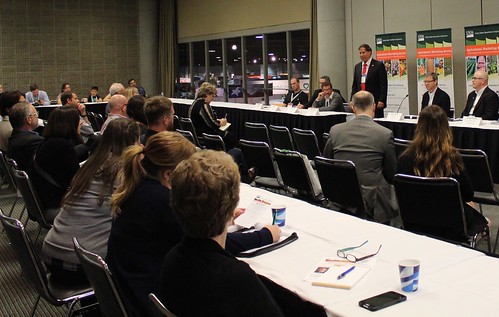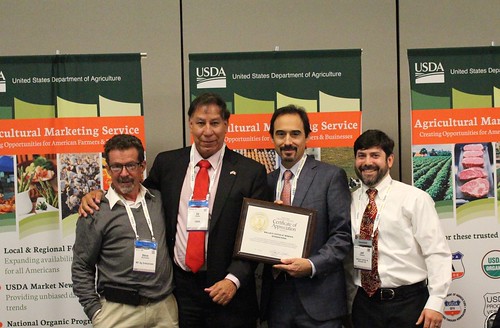
From small, family farms to large food production companies, food safety is a top priority for the folks who feed our nation and put food on tables around the globe. Participating in programs like USDA’s Good Agricultural Practices (GAP), is one way that farmers and producers of all sizes can demonstrate to buyers that they are adhering to industry food safety standards. By making this program more accessible to businesses of all sizes, USDA is creating opportunities for our nation’s small and mid-sized farmers.
Last week I traveled to Atlanta, Ga., for the Produce Marketing Association (PMA) Fresh Summit to discuss the expansion of our GroupGAP Program this coming spring. The program is an expansion of our Good Agricultural Practices (GAPs) Audit Program, which provides third-party certification services to verify that operations are following industry-recognized food safety practices as well as recommendations from the Food and Drug Administration (FDA).The pilot was supported by funding and technical expertise from the USDA’s Agricultural Marketing Service (AMS) and the Wallace Center at Winrock International.
During our panel discussion, I heard some remarkable stories about the pilot’s success and plans for the future. While we had leaders representing organizations of all different sizes, there was one constant message. The GroupGAP Program can provide a robust certification process that puts valuable food safety expertise in their hands and helps them work together to pay for certification costs.

Pilot participant Jeff Stoltzfus, an ag educator in the Eastern Lancaster County School District in Pennsylvania, shared a story that highlights a major benefit for the program. He spoke of the financial burden of a co-op of 80 farmers with 130 acres compared to a single farmer with the same amount of land. Under the traditional GAP model, each farm is required to have an individual audit, which can be costly for each farmer. In the GroupGAP model, the farmers can unite under a central quality management system and undergo a systems audit that leads to a group certification. This approach can reduce their individual certification costs. In addition, they can benefit from a system that provides food safety training and offers internal audits in addition to the traditional audits.
Fellow New Mexican Steve Warshawer, food safety coordinator for the National Good Food Network and the Wallace Center, explained that the GroupGAP Program provides small farmers a food safety model that mirrors the one used by larger farms. By providing a sound quality management system and food safety training, the growers will benefit from having access to the best food safety expertise available.
After spending my entire career working with producers and shippers in our rural communities, I know that expanding this program will remove a barrier that has prevented many of our small farmers from supplying larger retail markets, including local restaurants and schools. I also know that it will help our retailers meet the increasing demand for local foods. USDA is committed to supporting both these communities through the GroupGAP Program. I encourage you to visit our website to learn more about the program as we prepare for the official launch later this spring.
